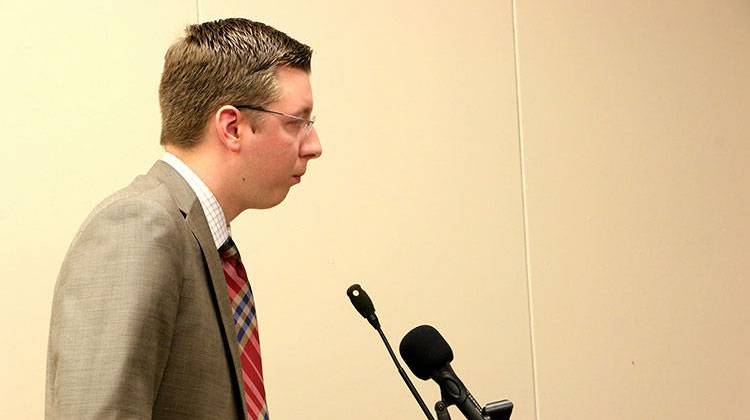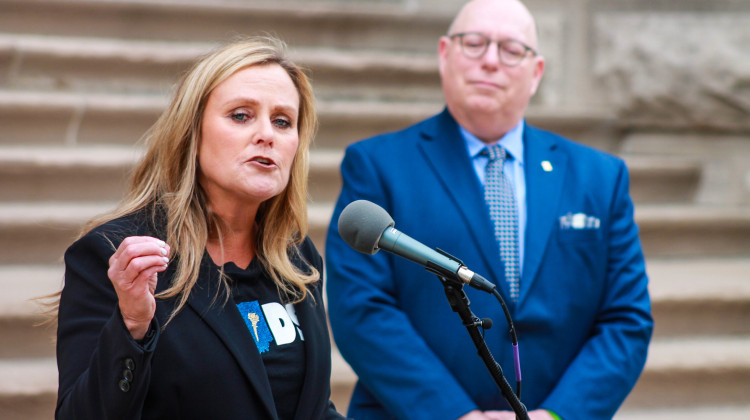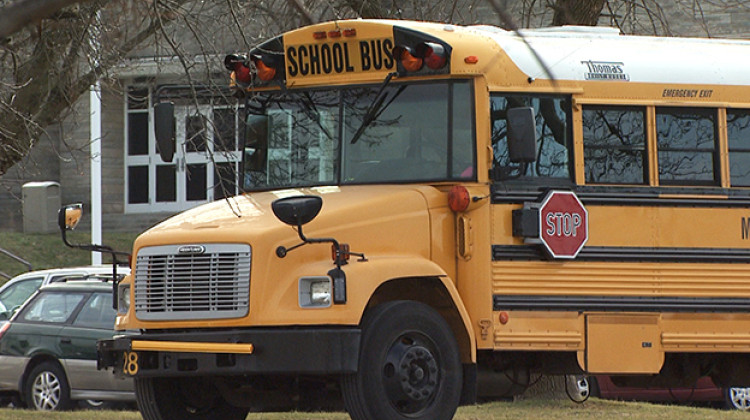
Rep. David Ober, R-Albion, introduces HB 1054 to the House Education Committee. Photo by Max Bomber, TheStatehouseFile.com.
Photo by Max Bomber, TheStatehouseFile.com.INDIANAPOLIS — A bill debated in the House Education Committee on Tuesday would create new incentives for college graduates to stay in Indiana.
House Bill 1054 creates a $5 million program that gives money to universities so they can partner with companies and give students more opportunities for on the job learning. The bill requires participating students to stay in Indiana after they graduate.
Advocates say the bill would provide incentive for graduated students to work in state which would promote business growth in our state.
House Education Chairman Robert Behning, R-Indianapolis, stripped the funding out of the bill, saying he had “some angst with $5 million.” He said the decision about funding will be left to the budget-writing House Ways & Means Committee.
The bill would give competitive grants to four state universities that have cooperative programs with private businesses. The money would be used for science, technology, engineering and math students, in part because the state would like to drive more students into those fields. The grant money would be used to place students in situations that promote Indiana businesses and corporations.
The four research intensive campuses that would qualify are Indiana University-Purdue University at Indianapolis, Indiana University in Bloomington, Ball State University and Purdue University at West Lafayette. “I would like to start with universities that have great ties to the corporate side,” Ober said. “Limiting to these few would help control cost.”
At Purdue University, only 10 percent of student who do internships with companies earn a job with that employer. But 56 percent of students placed into a co-op were hired by their employers, which is above the national average, said Eckhard Groll, director of Purdue’s office of professional practice. Although the numbers may seem promising, two-thirds of students find corporation positions outside of Indiana, Groll said.
The committee debated adding a provision that would require the programs to refund the money to Indiana taxpayers if the student did not become part of the Indiana job force. Behning then postponed a vote on the bill.
Max Bomber is a reporter for TheStatehouseFile.com, a news website powered by Franklin College journalism students.
 DONATE
DONATE








 View More Programs
View More Programs

 Support WFYI. We can't do it without you.
Support WFYI. We can't do it without you.